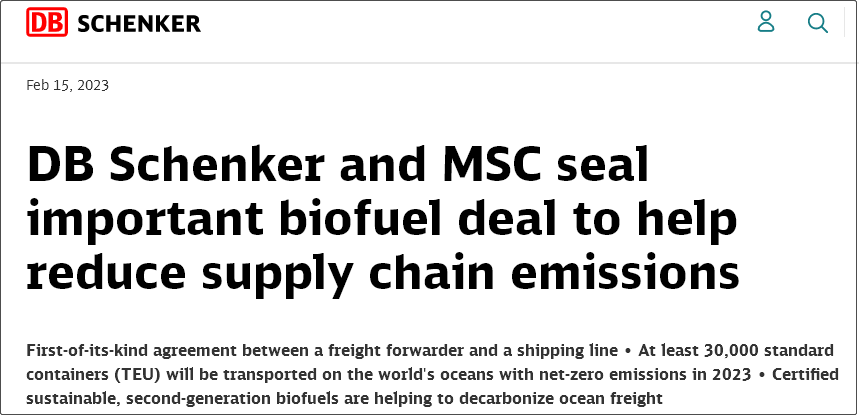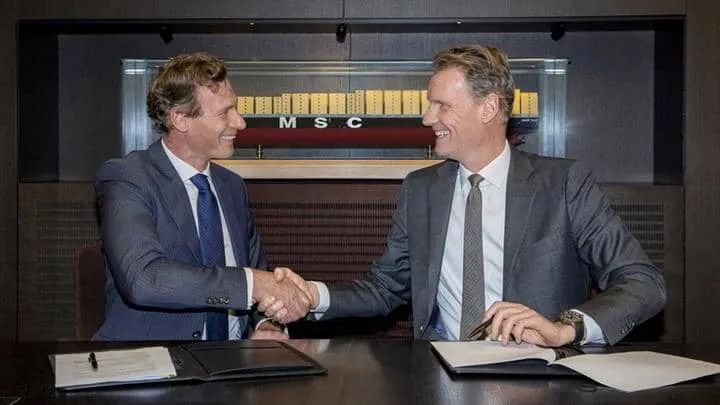The world's largest liner company and the fifth largest ocean freight forwarder announce an innovative agreement
What DB Schenker calls the first-of-its-kind agreement between a shipping line and a freight forwarder is one of the largest carbon-embedded biofuel deals between a forwarder and a shipping line.

According to the agreement,DB Schenker commits to purchase 12,000 tonnes of certified sustainable second-generation biofuel for MSC's container ships to transport DB Schenker's containerized cargo, including less than container load (LCL), full container load (FCL) and reefer containers.
According to the announcement, the biofuel purchased by DB Schenker will be blended with standard marine fuel at a ratio of 20% to 30%, resulting in approximately 50,000 tons of blended biofuel, which will achieve an additional 35,000 tons of carbon dioxide equivalent in the entire production supply chain. CO2e).
DB Schenker estimates that thisEquivalent to transporting about 30,000 standard units (TEU) of carbon dioxide emissions is zero,It depends on the fuel usage during the voyage.
The project differs from other carbon offsetting projects in that carbon offsetting focuses on reducing emissions outside of the shipping industry, whereas the purchase and blending of biofuels will immediately and directly reduce shipping carbon emissions. Alternatively, similar to net-zero flights using sustainable aviation fuel (SAF), customers will be able to book scheduled net-zero ocean freight services and receive an annual reduction certificate for their carbon footprint.

Caroline Becqolt, MSC Senior Vice President, said: "We are delighted to be partnering with DB Schenker. We share similar goals with DB Schenker in our collective journey towards net zero carbon emissions."
“The decarbonization of maritime transport cannot be achieved by a single player and requires collaboration between shipping companies and forwarders and logistics companies and their customers. The MSC Biofuel Solution is our first certified carbon embedding program that reduces carbon emissions in customers’ supply chains. carbon emissions and accelerate the energy transition by creating demand for net-zero carbon shipping and directly reducing carbon emissions.”
Thorsten Meincke, DB Schenker Global Board Member for Air and Sea Freight, said: “Together with MSC, we are offering our customers a convenient and clean solution using the latest generation of marine biofuels to help achieve real additional emissions reductions.”
"We're doing this because we believe it's the right thing to do, and we're going to pay up front for our biofuel purchases. One thing's for sure: the more customers demand carbon neutrality throughout the supply chain, the faster we can get to clean." container shipping."
It is understood that certified sustainable second-generation biofuels, also known as advanced biofuels, can be used in routine marine operations without requiring adjustments to ships’ infrastructure or supply chains, making them a particularly convenient solution. Extracted from waste cooking oil, this type of biofuel ensures at least an 80% reduction in CO2 emissions.




















